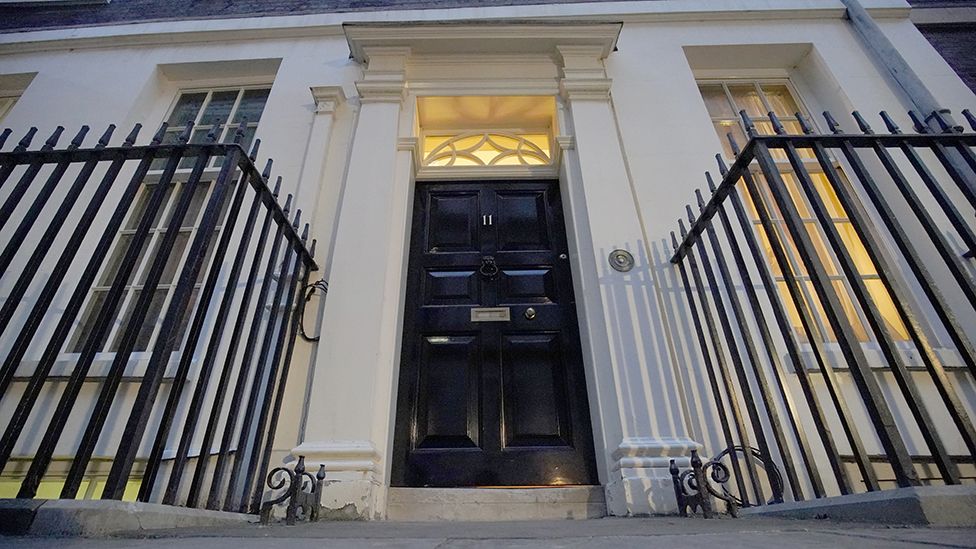The prime minister is facing questions about how home improvements at his Downing Street flat were paid for.
An official investigation is now looking into whether a donation towards the works may have broken the law.
What’s the row about?
Boris Johnson and his fiancee Carrie Symonds carried out renovations on their private residence, the flat above 11 Downing Street.
The prime minister receives an annual public grant of £30,000 to spend on his living quarters. But there’s been speculation the final bill came to as much as £200,000.

Last week, Mr Johnson’s former chief adviser Dominic Cummings claimed the prime minister had planned to solve this shortfall by having donors “secretly pay” for the work.
Mr Cummings said this would have been “unethical, foolish, possibly illegal” and would mean the PM “almost certainly broke the rules on proper disclosure of political donations if conducted in the way he intended”.
Mr Johnson himself insisted “I covered the costs” during an angry exchange with the Labour leader Sir Keir Starmer at Prime Minister’s Questions this week.
But he repeatedly refused to answer questions about whether any money was initially loaned to cover the costs.
Why would a loan be controversial?
If a politician accepts money from a donor – either as a gift or as a loan – they are expected to make that information public.
The concern is that if a financial gift is kept secret, it might be used to gain favours or political influence.
The Electoral Commission is now investigating whether the Conservative Party advanced £58,000 to the Cabinet Office (the government department responsible for Downing Street) to cover the cost of the refurbishment.
If this happened, it should have been classed as a political donation, and as such, made public.
In a statement, the commission said: “There are reasonable grounds to suspect that an offence or offences may have occurred.”
If it finds that rules have been broken, it has the power to issue fines of up to £20,000.

What else is known about the donation?
It’s been reported that the loan originally came from the Conservative peer Lord Brownlow.
According to a leaked email in the Daily Mail, Lord Brownlow said last October he was making a donation of £58,000 to the Conservative party, “to cover the payments the party has already made on behalf of the soon to be formed ‘Downing Street Trust'”.
Speaking to MPs on Monday, the head of the Civil Service, Simon Case, confirmed that Lord Brownlow had been involved in discussions about whether Downing Street buildings could be funded through a charitable trust.
However, Mr Case said no charitable trust had been formed to date, and such a body would not in any case be allowed to pay for the private areas of Downing Street.
What are the rules for donations and loans?
Normally, MPs have to register within 28 days any donations or loans which could influence their actions.
There is also a list of ministers’ interests with different reporting rules and publication schedules.
The prime minister has asked his own newly appointed standards adviser, Lord Geidt, to investigate the funding of the refurbishments.
When Lord Geidt presents his findings, Mr Johnson will be the final judge of whether he breached the ministerial code.
This has prompted complaints from Labour that the prime minister is being allowed to “mark his own homework”.
Why does the PM live next door to No 10?
Like several of his recent predecessors, Mr Johnson and Ms Symonds are living at No 11 because the four-bedroom flat there is much larger than the one above No 10.
Tony Blair was the first prime minister to live at No 11 – he and his wife Cherie turned the space into a family home for themselves and their three (later four) children.
The Grade 1-listed flat was then extensively refurbished by David and Samantha Cameron in 2011 at a cost of £30,000.

The latest upgrade for the flat was carried out by interior designer Lulu Lytle, a source has told the BBC.
The couple wanted to transform the flat from Mr Johnson’s predecessor Theresa May’s “John Lewis furniture nightmare” into a “high society haven”, according to the society magazine Tatler.